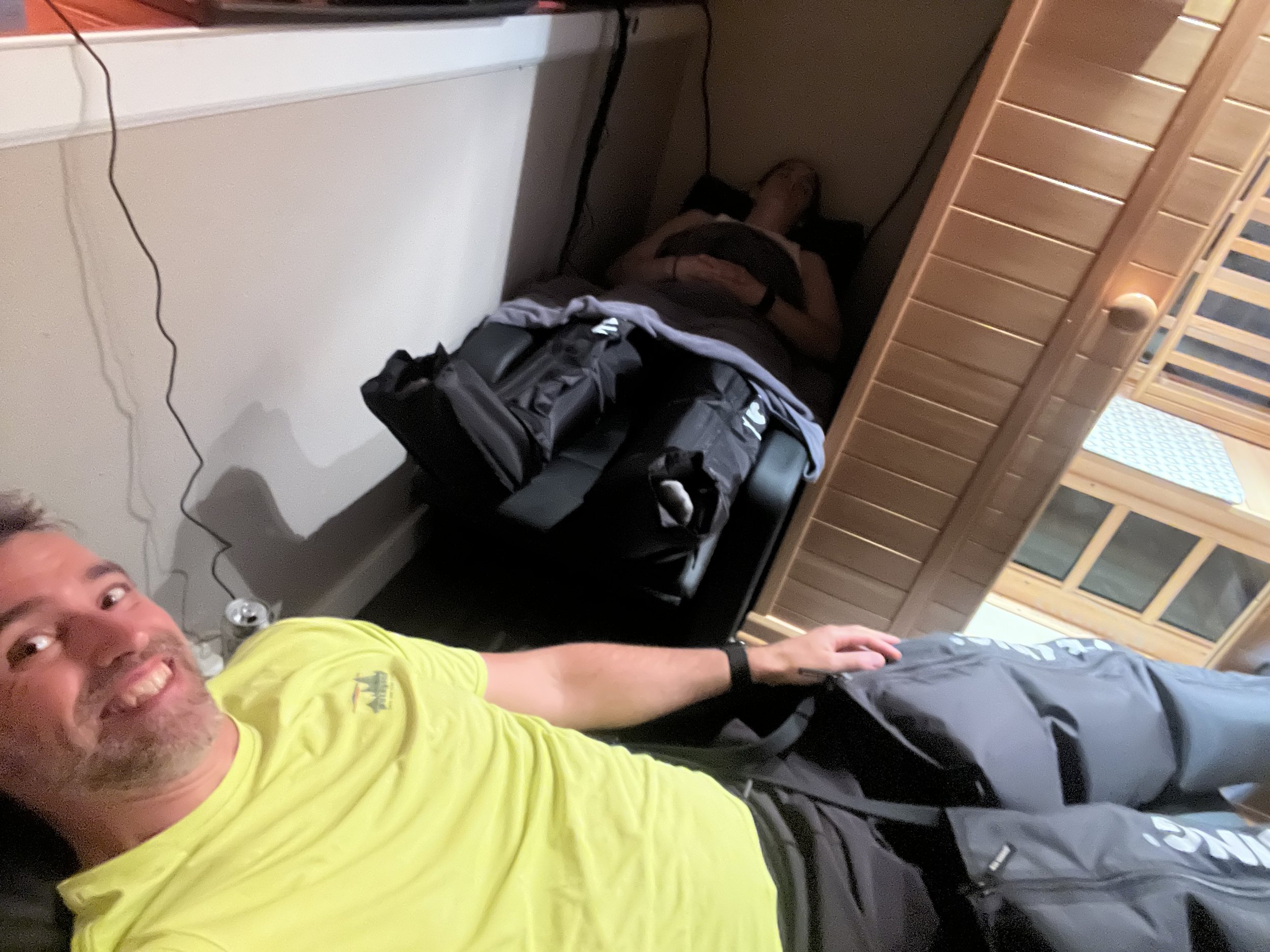When Does Your Recovery Start?
When does recovery start? It's a question that might seem simple, but the answer can profoundly impact your training and performance. For most athletes, recovery tends to be something that happens after the hard work—after the workout, the long ride, or the tough race. But at Grit City Health, we believe your recovery starts the moment you begin planning your training block.
In the recovery room at GCH relaxing with some compression boots.
Rethinking Recovery
Recovery isn't just what you do after your event; it's built into every stage of your preparation. From the first training session to race day, every workout impacts your recovery and your body's ability to grow stronger. If you're not thoughtfully planning your recovery as intentionally as your training, you're leaving performance, health, and joy on the table.
Here’s what intentional recovery means for you:
Before You Begin:
Your initial approach to training sets the stage. Understanding your body's signals and adapting your efforts accordingly helps ensure you aren't overtraining from the start. Integrating proper nutrition, hydration, and sleep into your routine primes your body to handle the demands of training.During Training:
Pay attention not just to how you perform during each workout, but also to how you recover afterward. Intentional recovery includes active recovery days, strategic rest, and listening closely to your body’s cues. Not every session should leave you exhausted; some should leave you refreshed.Immediately Post-Event:
Recovery truly begins the moment you cross the finish line or wrap up a challenging workout. Proper nutrition, hydration, and gentle movement in the hours following your effort speed up muscle repair and reduce soreness, setting the stage for long-term growth.Days and Weeks Following:
Beyond the immediate aftermath, your recovery continues. Incorporating sessions such as massage, mobility work, and restful activities help your body heal and strengthen. Reflection and mental relaxation also play a critical role, providing the emotional recovery necessary to sustain long-term motivation.
Why Does Intentional Recovery Matter?
Properly integrated recovery allows your body and mind to adapt positively to stress, improving performance and overall health. It reduces the risk of injury, burnout, and frustration, creating a sustainable path toward your goals.
At Grit City Health, we focus on the whole journey—not just the destination. We're here to help you build a balanced training and recovery strategy that enhances your experience, whether you're racing competitively, pursuing personal fitness goals, or simply aiming to live a healthier, more active life.
Ready to make recovery a cornerstone of your training?
[Book a Recovery-Focused Session Today]
Coming Next Week: Train Smarter, Not Harder
Recovery isn’t just about rest—it’s about setting yourself up for better, more effective training. Next week, we’ll explore why smart, intentional training beats simply doing more work. Learn how to make every session count, avoid burnout, and see real progress without wasting effort. Stay tuned!

